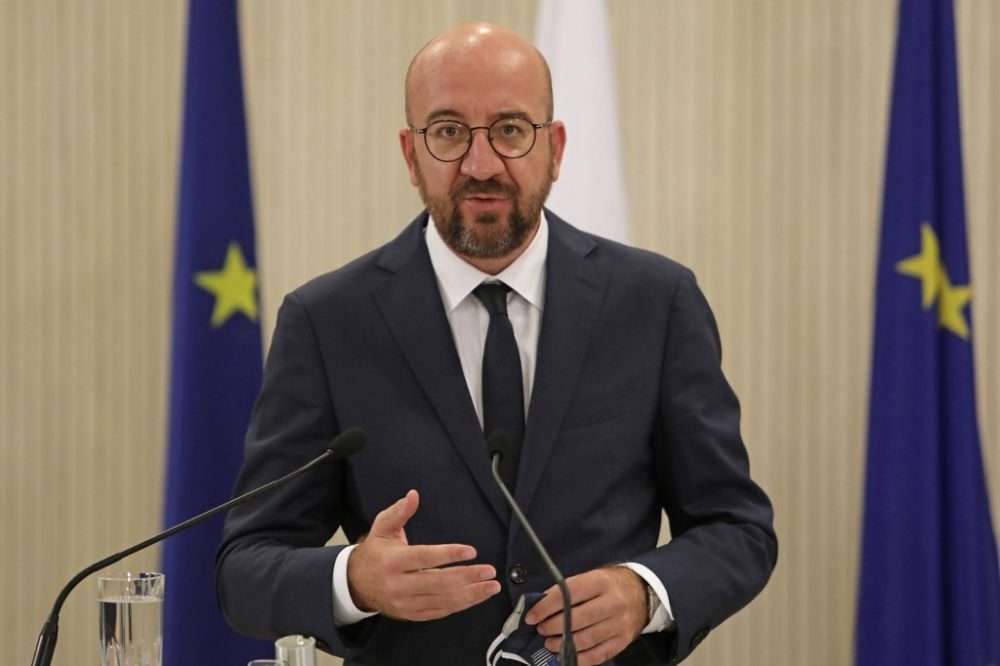The European Union has initiated membership talks with Ukraine, a move celebrated as a victory by Ukrainian President Volodymyr Zelensky, while simultaneously facing a setback as Hungary blocks a crucial financial aid package for Kyiv. EU Council President Charles Michel announced the decision, marking a significant moment in EU history and reinforcing support for Ukraine amidst its conflict with Russia. However, Hungary’s veto on the aid package highlights internal divisions within the EU and the challenges ahead for Ukraine’s path to membership.
 by Jack Diffley
by Jack Diffley
In a blend of triumph and contention, the European Union’s latest summit witnessed a dual-faced development regarding its relations with Ukraine. On one hand, the EU leadership, headed by Charles Michel, President of the EU Council, agreed to launch accession negotiations with Ukraine and Moldova, also granting candidate status to Georgia. This move, as described by Michel, sends a message of hope and solidarity to both nations and the European continent at large.
Ukrainian President Volodymyr Zelensky welcomed the decision with open arms, framing it as a pan-European victory and a testament to the unyielding spirit of those fighting for freedom. The announcement carries substantial geopolitical weight, coming nearly two years after Ukraine was accepted as a candidate state and amidst its prolonged struggle against Russian aggression.
However, the summit was not without its challenges. A crucial aid package for Ukraine, essential for its ongoing defense and recovery efforts, faced an unexpected roadblock. Hungary, led by Prime Minister Viktor Orban, known for his close ties with the Kremlin, was the lone voice opposing the multi-billion euro aid package. This development threw a wrench in the EU’s unified front, causing a delay in financial support that is critical for Ukraine’s resilience against Russian invasion.
Dutch Prime Minister Mark Rutte acknowledged the setback, expressing cautious optimism about resuming funding talks in early 2024. The discord within the EU, particularly Hungary’s stance, underscores the complex dynamics at play within the bloc, balancing strategic interests with internal political divides.
Meanwhile, EU leaders and officials, including European Commission President Ursula von der Leyen and German Chancellor Olaf Scholz, hailed the decision to initiate membership talks as a historic and strategic milestone. They reaffirmed their commitment to the European values of democracy, human rights, and rule of law, essential pillars for any aspiring EU member.
However, Hungary’s Orban openly contested the decision, reinforcing his view that Ukraine is yet to meet the necessary conditions for EU membership negotiations. His dissent highlights the fragile consensus within the EU on its expansion and relations with neighboring countries.
Despite the political progress, Ukraine’s path to EU membership is fraught with challenges. The country must navigate the rigorous process of meeting the EU’s Copenhagen Criteria, which assesses the readiness of a candidate country in terms of its economy, legal institutions, and democratic governance. For Ukraine, currently in a state of war, these requirements pose significant hurdles.
In conclusion, while the EU’s decision to open membership talks with Ukraine marks a significant step forward, it is tempered by internal disagreements and the complex realities of Ukraine’s situation. The journey towards EU membership is a marathon, not a sprint, requiring steadfast commitment, strategic diplomacy, and resilience in the face of adversity.
(Associated Medias | FAD) – All rights reserved.
